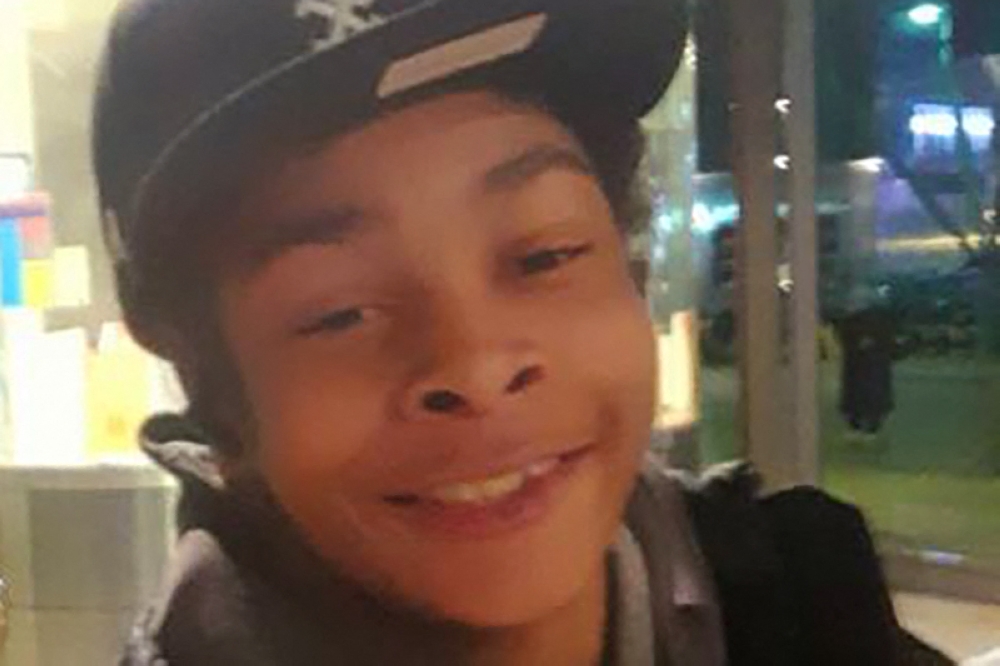LONDON, Jan 10 — A 14-year-old boy who was stabbed to death this week on a London bus was the first victim this year of a knife-crime problem that has plagued the British capital for years.
Aspiring rapper Kelyan Bokassa was stabbed on Tuesday afternoon while on a double-decker bus in the Woolwich area of southeast London. Emergency services were unable to save him and he died at the scene.
Photographs of the teenager published in British newspapers yesterday showed a smiling young boy who, according to his mother, had been targeted by gang members.
His death comes after 10 teenagers were fatally stabbed in London last year and 18 in 2023, with each death prompting tributes and pledges to stamp out gang violence and knife crime.
But even with tighter controls on the availability of weapons, public concern remains, with official figures showing an upward trend in offences using knives and sharp instruments, including homicides, mostly in big cities such as London.
The day before his death, an 18-year-old boy was seriously injured in a stabbing a few kilometres away.
In September last year, a 15-year-old boy, reportedly a close friend of Kelyan, was also stabbed to death in Woolwich, in what the prosecutor described as retaliation linked to a turf war.
Groomed
In Kelyan’s case, the circumstances surrounding his death are not yet known.
The Woolwich area is known for its gangs — the Wildbatch gang and bitter rivals the WoolyO gang — which vie for control of the local drugs trade, according to the Daily Mail.
A gang named the Woolwich Boys emerged there in the late 1990s and is said to have since grown into a criminal organisation involved in drug trafficking and contract killings.

Kelyan’s mother, Marie, 50, said her son had been groomed by gang members and exposed to drugs after being taken into care, and endured a spell living on the streets.
“My heart never relaxed whenever he left home,” she told The Times daily.
“It’s not easy to have your child go out and not know if they are coming back. I’d go to bed and wait for him and that’s where I was when the police came to my door and told me what I had feared the most,” she said.
“Each time I go to Woolwich I hear about the police investigating a stabbing. When the police came I felt, ‘This is my turn’. This is something I tried to avoid, I thought I did my best to prevent this.”
‘War zone’
Around 27,000 young people aged 10-17 were in 2017 identified as being members of a street gang, according to figures published in a recent Ministry of Justice report.
Kelyan had been due to appear in court on a charge of possession of an offensive weapon after taking a machete into school last year.
He had previously taken a knife to school aged nine.
A football fan and amateur rapper, Kelyan had lived alone with his mother for the past two years. He had previously been placed in the care of the local authorities.
It was while in care, according to his mother, that his life really spiralled downwards.
His mother, who came to Britain from France 30 years ago, added that he had been “labelled as gang-affiliated by the time he was six”.
“There is a very serious problem in London, it feels like a war zone. There is a massive issue that needs to be addressed,” she said.
‘Deeper societal issues’
Iain Overton, executive director of the NGO Action on Armed Violence, said in a report last year that knife crime was “a symptom of deeper societal issues, including poverty, lack of opportunity, and the breakdown of community structures”.
“Without addressing these root causes, any attempt to curb knife crime will only be a temporary fix.” he said.
Alison Cope, who lost her son Joshua, 18, to knife crime in 2013, told AFP the UK’s approach to the issue was not working.
“No matter what they keep saying, it’s not having an impact on the ground, and I just wish that would change,” she said.
Parents were “screaming out” for help but that unless young people had already been involved in a serious incident the system regarded them as low priority and did nothing.
“I think we’ve got to the point now where there’s so many issues, it’s going to be very, very difficult to take back control,” she added. — AFP






















